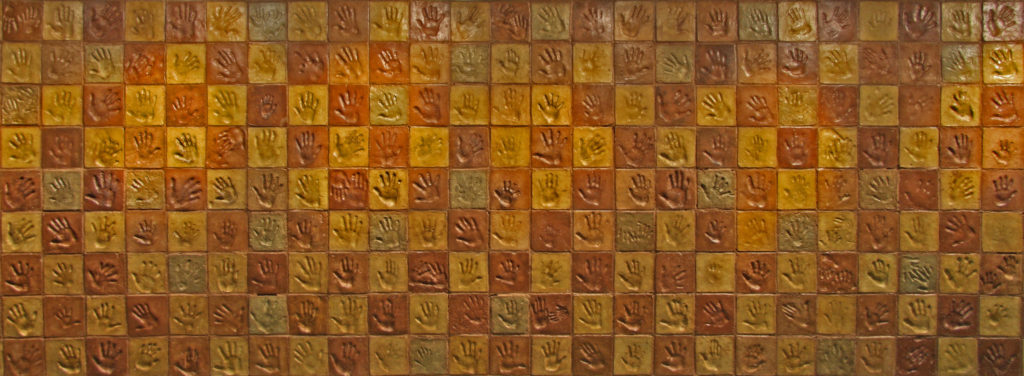
Opportunities for altruistic giving surround us online. You are probably only a couple of clicks away from a carefully-crafted appeal as you read this article. But charitable giving in healthcare is contested terrain. Marketing materials present donating to a health charity or hospital as an act of generosity, of gratitude, or even, as we saw at the height of the COVID-19 pandemic, of duty. Appeals are justified because of the good that can be achieved through fundraising. As well as acting as a safety net for unmet need, charitable and voluntaristic provision is often argued to be uniquely humane, enhancing the caring human face of care, improving patient experience, and freeing up professional staff to focus on clinical aspects of their roles.
More critical research on charity and healthcare identifies charitable acts as indicative of the exigencies and failings of healthcare systems. Here, charitable money and roles are understood not as pro-social add-on but as the residue left behind when the organisations who should meet healthcare needs withdraw or falter. Recent research has centred unhealthy power dynamics, charitable giving, and charitable appeals, invoking familiar patterns of begging and patronage to access services which should be a human right. And patronage brings its own risks as, from Thomas Guy to Jimmy Saville, charitable ‘good works’ create opportunities for rich, powerful people to augment, or even launder, their reputations. Finding an appropriate role for charitable fundraising in healthcare raises fundamental questions about responsibilities and priorities.
While charitable income streams have long played a vital role in healthcare systems, charitable practices and institutions also have particularly complex relational consequences. In the UK, one of the foundational texts of this field is Richard Titmuss’s The Gift Relationship: from human blood to social policy (2019). This empirical comparative study of voluntary and commercial blood donation in the USA and the UK sought to explain some of the risks when market principles ‘crowded out’ non-market norms in the blood donation system. It is deeply imbued with Titmuss’s personal social philosophy, centred on the importance of altruistic acts in strengthening societies, and an often entertaining hostility to the economists who offered critiques of his work. He was an enthusiast for the work of anthropologist Mauss on gifts, arguing that “customs and practices of non-economic giving – unilateral and multilateral social transfers – may tell us much… about the texture of personal and group relationships” (2019: 54).
Our takeover
In this Polyphony takeover, curated by researchers from a Wellcome Collaborative Award on charity and the NHS since 1948 in the week of our closing project conference, we explore the texture of these relationships through a selection of contributions on the social and cultural dynamics of charity and healthcare across place and time.
We begin with a series of contributions from, or responding to, the work of our own research on charity and the UK NHS. Frances Williams offers a visual analysis of our timeline of fundraising posters for hospitals. Francesca Vaghi reflects on public engagement events with children in Glasgow, and on the insights and priorities children shared for the NHS, and how to fund it. Hannah Blythe shares a photo essay of 1970s hospital administrators use of visuals to communicate their spending of charitable funds to enhance healthcare in Sheffield, reflecting on the imagined communities of these reports during a period when NHS hospitals were mostly not actively fundraising, but spending down pre-NHS endowments. Agnes Arnold-Forster explores archival traces of the Royal Family’s longstanding connections to Great Ormond Street Hospital.
Finally, we are delighted to expand our focus beyond the UK, with two contributions focused on charity and healthcare elsewhere. Fanny Chabrol’s photo essay offers critical ethnographic reflections on the charitable configurations around two hospitals, one in ruins and one newly built: New Orleans’ former Charity Hospital and Butaro Cancer Hospital in Rwanda. To close the takeover, Nora Kenworthy shares affecting ‘found poems’ composited from her decade of researching medical crowdfunders in the USA.
This eclectic group of contributions showcases some of the complex relational dynamics which charity introduces or amplifies within healthcare. We invite engagement with health charity as an entry point to fundamental debates on fairness, accountability and power in health systems.
About the authors
Ellen Stewart is a social scientist working at the intersection of medical sociology and health policy. She is Professor of Public Policy & Health at the University of Glasgow, and is one of the grantholders on the Border Crossings Wellcome Trust Collaborative Award.
Francesca Vaghi is a Research Associate at the University of Glasgow, working with Professor Ellen Stewart on the Border Crossings project. She has a background in medical anthropology, childhood studies, and anthropology of policy.
References
Titmuss, Richard. 2019. The Gift Relationship: From Human Blood to Social Policy. Bristol: Policy Press.